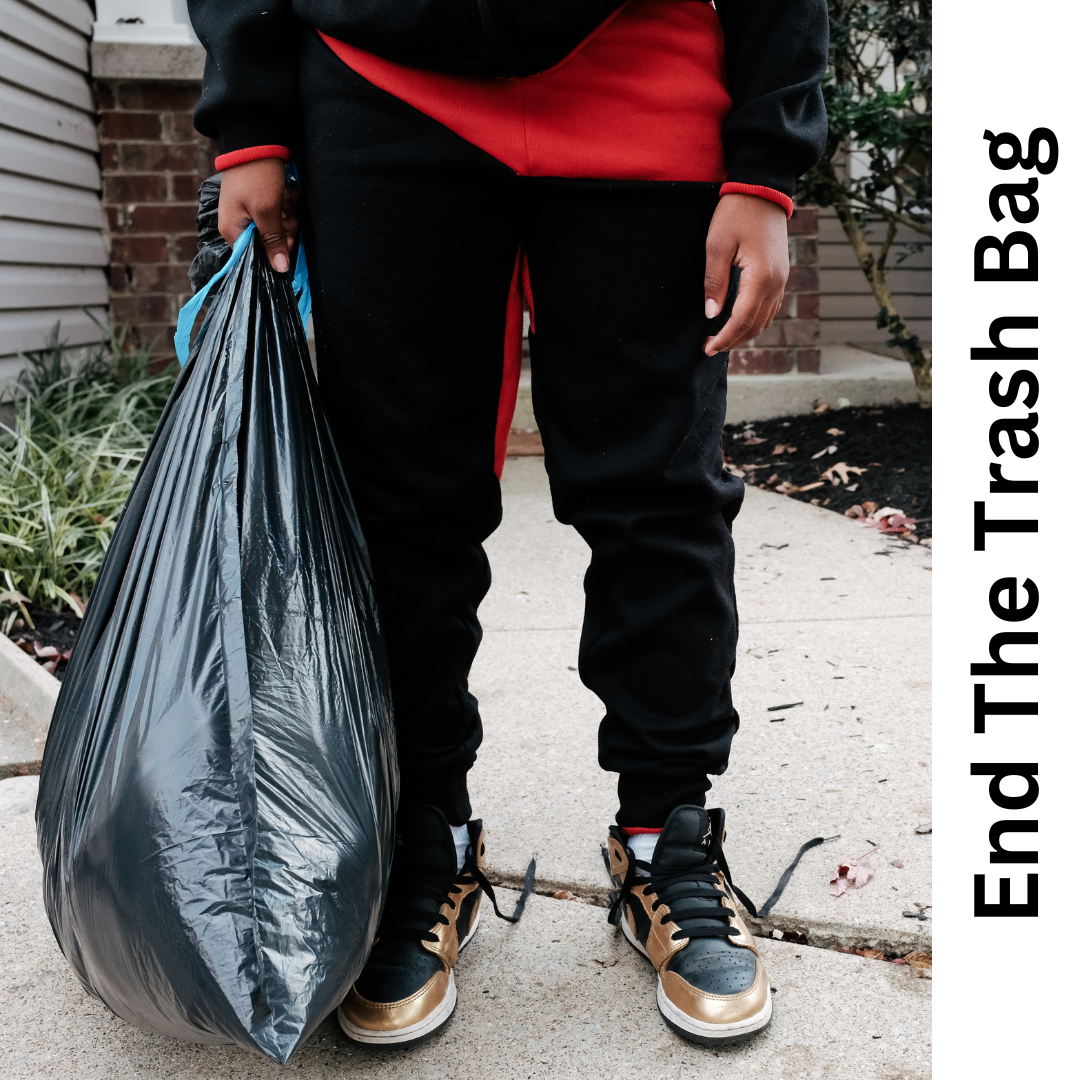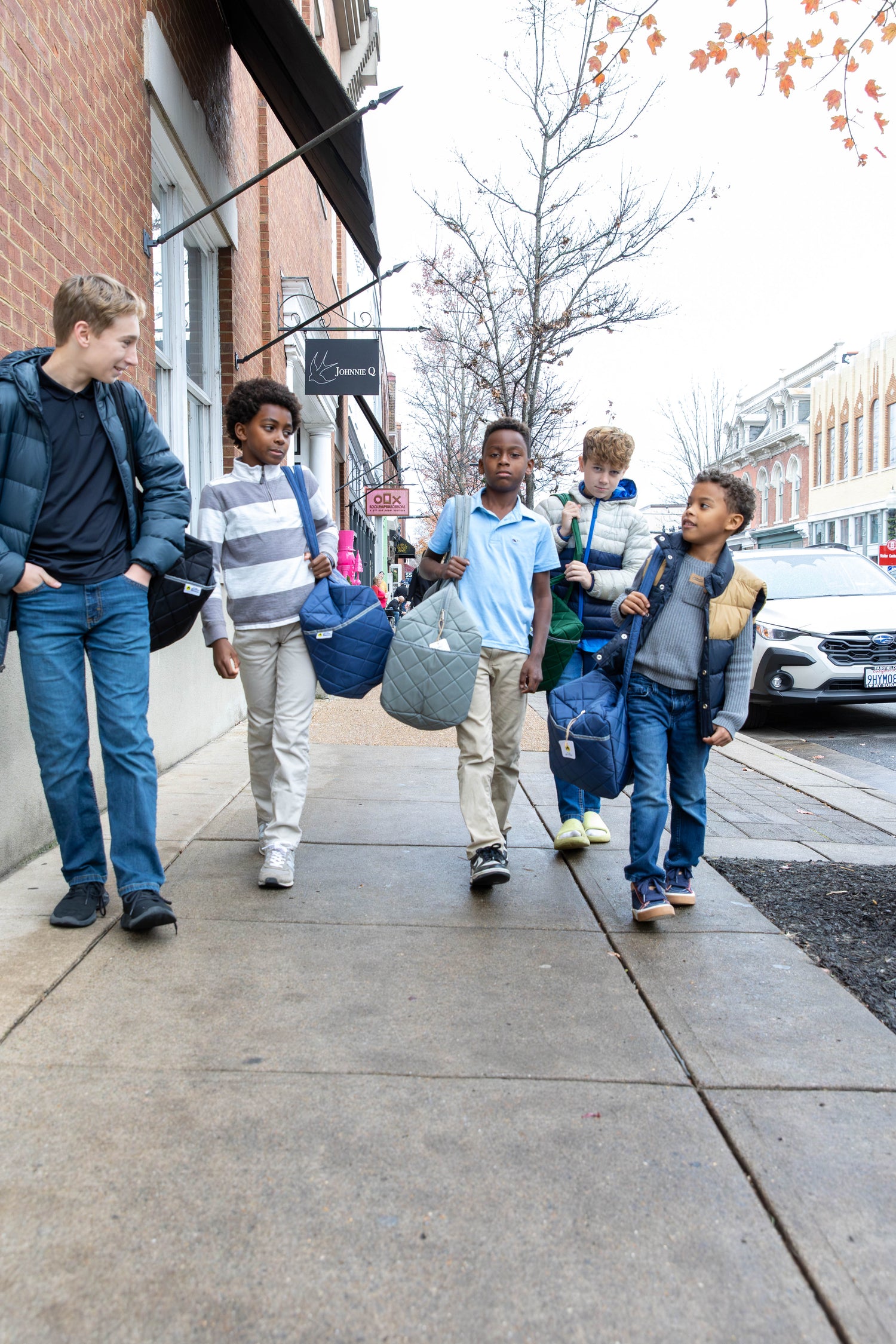
Making a Meaningful Contribution: The Benefits of Donating New Bags to Foster Children
Making a Meaningful Contribution:
The Benefits of Donating New Bags to Foster Children
For children and youth placed in foster care, life can be confusing and uncertain. The transition can be overwhelming, characterized by fear, bewilderment, and insecurity. Uprooted from their known surroundings, they typically find themselves in foster homes with minimal belongings, often arriving with little more than the clothes on their backs and sparse belongings packed in a trash bag.
That’s the situation for approximately 400,000 children and youth in the US who’ve been placed in foster care due to situations beyond their control, often resulting from an unsafe home environment. It’s a daunting number that can create the impression that individual efforts to help are futile. Yet, fortunately, some individuals step up in remarkable ways, like becoming foster parents, to make a significant difference in these young lives.
While not everyone is in a position to become a foster parent, the good news is that small acts of kindness and support can still have a profound and enduring impact on the lives of children and youth in the foster care system. One small gesture that creates a lasting impact is donating new bags to children and youth in care. Continue reading to explore how purchasing a new bag benefits children and youth in care and how you can easily participate.
Small Gesture; Big Impact
Foster children frequently face challenges in feeling a sense of belonging due to their transient lifestyles. It’s not uncommon for children raised in the foster care system to experience over 15 placement changes. Often, a child entering the foster care system experiences significant instability, frequently living in more than four different homes within their first year of care, creating various challenging situations.
- Emotional and Psychological Impact: The lack of stability and constant movement can lead to emotional and psychological stress. Children may feel a sense of abandonment or rejection whenever they move to a new home, leading to attachment issues, where children either become overly attached or struggle to form attachments at all due to fear of further loss or rejection.
- Difficulty Forming Relationships: Frequent changes in foster homes can make it difficult for children to form deep, lasting relationships. It applies not only to foster families but also to peers, teachers, and other community members. Consistently changing schools and neighborhoods make it hard for these children to develop friendships and a supportive network.
- Educational Disruption: Frequent moves can disrupt a child's education. Each move may mean a change in schools, leading to gaps in learning, differences in curriculum, and challenges in adjusting to new educational environments. As a result, they may face academic struggles and further feelings of alienation and frustration.
- Long-term Consequences: Children who experience over 15 placement changes face significant challenges. Such a high number of moves can lead to a deep sense of instability and insecurity. Long-term consequences may include difficulties in forming stable adult relationships, challenges in maintaining employment, and increased risk of mental health issues like depression and anxiety.
- Sense of Identity: Frequent moves and the lack of a stable home can impact a child's sense of identity. Constantly adapting to new environments and families can make it difficult for them to develop a strong sense of self. They may struggle with questions about who they are and where they belong.
- Support Systems: The importance of support systems and gestures of kindness in mitigating these challenges cannot be overstated. Consistent, caring adults like social workers, therapists, teachers, and mentors can play a pivotal role in providing the stability and support these children need to navigate the challenges of foster care.
Adding to their stress and feelings of being temporary, countless children in foster care transport their clothes and a few personal belongings in large garbage bags or fragile plastic grocery sacks. While this may seem minor compared to the other substantial challenges these children face, it’s far from inconsequential.
An essay, “Lightening the Load: How The Science Of Possessions Can Help Foster Kids,” from the Jones Graduate School of Business at Rice University, details the profound effect of this seemingly insignificant indignity. It often intensifies or reinforces the sensations of instability, helplessness, and a sense of being undervalued.
A new bag can ease this process by allowing them to transport their belongings in a dignified and organized manner.
Why New Bags?
You may be thinking about extra suitcases, duffle bags, or backpacks you have on hand and wondering why you can’t donate them. While your heart may be in the right place, carrying hand-me-down or worn-out bags can unintentionally highlight foster children's unique challenges, often setting them apart from their peers.
Providing these children with new bags is crucial to their integration and social development. Purchasing a new bag helps them blend in more seamlessly with their peers, fostering a sense of normalcy and belonging, and carries significant emotional benefits.
Receiving new items is more than just a practical gesture; it's a powerful symbol of care, deservingness, and support. Your thoughtfulness can profoundly impact the self-esteem of a child or youth in care, reinforcing the message that they are valued and deserving of the same opportunities as other children. In this way, something as simple as a new bag can be a meaningful tool in nurturing their overall well-being and aiding their emotional and social development.

